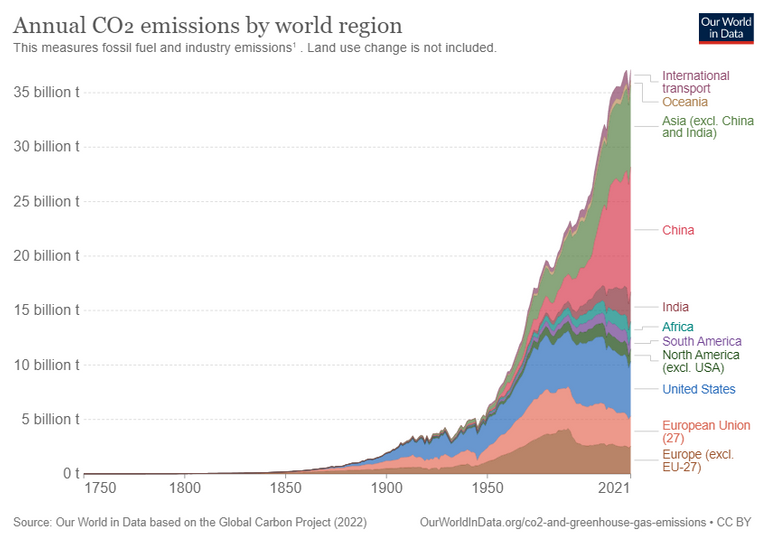Planting Trees is a Waste of Time
The reality turned out beyond disappointing, as we were given about 1 tree between two people, which was not actually a tree but a shrub, in a muddy patch of land in a resort they very clearly digs up and resets it all for the next school to visit the moment you leave.
It got me pondering what the point even was, what did students learn, other than how to use a shovel they somehow had no idea about? I started bitterly pondering about these tree planting initiatives more generally, something I've always felt a bit cynical of. It always came across as one of those virtue signaling moves the middle class do in order to wash their hands clean of doing anything actually good in the world.

But, this is understandable. we are all constantly being taught that planting trees is an honourable act, something we can personally do to make a real difference. No questions required.
From content creators like Mr. Beast planting 20 million trees for views, all the way up to the leaders of governments using the idea to get more votes, everyone is fighting it out to plant the most trees in order to be considered the best person.
Now, on the surface I have nothing against anyone giving it a go. My problem lies in the marketing and propaganda of what planting these trees actually accomplishes - not much. That is, of course, if your end goal is to save the world from Climate Change.
If a project instead aims to improve local biodiversity, for example, now that's a great cause, and an effective one - if it's done right. But in most cases, it isn't done right at all. Generally, such initiatives require a LOT more than simply finding a good, resilient, long-lasting tree and planting 8 billion of them across the landscape. This has demonstrably been fairly catastrophic for biodiversity, and a recipe for mass tree genocide when a single virus or fungus wipes out an entire forest in a matter of months.
These mistakes have already come to fruition on multiple occasions around the world. Perhaps one of the greatest examples is when China started a reforestation initiative back in 1998 to prevent flooding, a project which continues today. But a study in 2018 found that:
...most reforestation efforts simply planted one tree species, making a plot of reforested land ecologically akin to a monoculture plantation... even cutting down actual forest to do so.
Cutting down forests?
This is a symptom of a very real phenomenon often called the Cobra Effect, famously based on the anecdote about the British government being worried about all the deadly cobras hanging out in India, so they offered financial incentives for locals to kill them off.
The end result was in fact an increase of cobras, because the savvy locals started breeding cobras in order to create a booming economy around their slaughter. Likewise, the Chinese project often destroyed natural, biodiverse forests and replaced them with what was was little better than a palm oil plantation, something we are told is one of the worst things ever, but without any product.
The Chinese initiative, when expanded into desert areas to try and fend off desertification actually increased desertification as the trees sucked up what little groundwater existed, and were almost entirely stunted in growth contributing nothing towards prevention.
The exact same monoculture and plantation growing was found in most of the global tree growing initiative, the 'Bonn Challenge', and similarly, dodgy subsidies encouraged deforestation of actual forests to grow lifeless plantations.
The lesson here being, things that sound like a grand idea turn out to make matters far worse than if you just didn't bother, more often than you'd like.
Trees just aren't enough, no matter what
Okay so let's put aside human flaws and ineptitude for a while and assume we did everything without any need for money or incentive, and it was all done accurately according to science.
I don't need to be a mathematician to figure out that our emissions far outstrip the physical possibility for trees to make even a dent into the numbers.
This study, The global tree restoration potential, concluded that the earth is capable of holding an extra 25% more trees than we currently have - sufficient to 'remove' half of all emissions from humans since 1960.
But this is purely hypothetical and leaves more questions than it gives answers, as NASA's Sassan Saatchi points out:
- 'How realistic are the study’s estimates of how much carbon can be sequestered through reforestation? * How long will this approach take to make a dent in atmospheric carbon concentrations?
- Can grasslands and savanna ecosystems sustain increased tree cover?
- How might converting non-forest land to forests compete with food production?
- How much time, money and resources will it take to implement a global forest restoration of this magnitude?
- How do the costs of adopting such a climate mitigation strategy stack up against its potential benefits?
- How much carbon would be released to the atmosphere by restoring forests?
- How will global climate models respond to a massive forest restoration?
- Will an Earth with a billion hectares of new forests actually be cooler?'
That last question in particular is of interest. It seems, apparently, the answer is likely 'no'. I say this for a number of reasons. First, we don't emit carbon at the same rate as we did in the 60's.

1960 is estimated to have emitted about 7 billion tons of CO2, compared to 35 billion today, 5 times that of the swinging 60's and rising.
Cement production alone accounts for almost 2 billion tons of CO2 per year - and rising.
Let's run the numbers with cement only. A good tree might last 100 years (we're not planting millions of spruces and oaks), and in ideal conditions, it may capture about 1 ton of carbon throughout its life combined. We therefore need a rough estimate of about 2 billion trees to be added to what we already have, every year in order to offset the production of cement. Assuming cement production doesn't increase, which it does, and deforestation isn't a thing, which it is.
Expanding this a bit more, it's estimated that we would need about 200 billion trees just to offset the CO2 emissions coming from the individual citizens of the USA alone.
We would therefore need to plan an unfathomable amount of millions of trees, constantly, every day, forever, just to counteract the increase in emissions, let alone any reduction.
A simpler way to view it is that current tree populations are enough to capture 30% of our current emissions. This logically means we would need to triple our entire planet's population of trees immediately. Estimates suggest there are 3 trillion trees, so you better get a decent shovel and boots.
There simply isn't enough space on the planet where trees can grow to make even a fraction of a difference, even in ideal conditions. Granted, it could be part of a greater initiative, but planting trees is, for all intents and purposes, one of the least effective ways possible.
Trees take a long time to grow. Decades before they're tangibly useful. That is far too late even if it would be effective. And even if it was effective, there's another inherent problem with tree planting to cool the earth:
Trees are just not a good option for cooling the earth.
The truth is, that cobra effect has many tentacles.

Unfortunately, it turns out that planting trees in most of the world's tree-able land would in fact Actively increase temperatures.
This study 'Climate effects of global land cover change' points out that not all trees are equal, and neither are climates. Trees planted in anywhere other than a slim belt around the equator would actually do more heating than there would be cooling from the effects of carbon capture from the albedo effect. This is basically the earth's capacity to reflect heat back into space. White reflects heat, dark colours absorb it.
Hmm. White...
It turns out that Russia has by far and away the most trees of any other country, about 60% as many as the rest of the planet combined - double that of second place, Canada.
Russia is covered in Snow, something very white. If we were to somehow cover their icy land with countless spruce trees, their shape, colour and general existence would darken the surface, absorbing more heat than would otherwise be absorbed.
Calculations show that:
...global replacement of current vegetation by trees would lead to a global mean warming of 1.3°C - nearly 60% of the warming produced under a doubled CO2 concentration
However:
...replacement by grasslands would result in a cooling of 0.4°C.
Other than in already forested, hot regions, planting more trees might actually be another Cobra Effect in play and make us that extra bit more doomed.

Humans are desperate for a pat on the back
As I alluded to at the beginning, it is a very real effect when we all get societal praise from planting trees, like using metal straws; a job well done, and we stop any passionate effort to make a real difference. Government policy, now answering to a complacent public, move on to other immediate concerns such as how many genders could a wood chuck chuck if a wood chuck could chuck genders?

Tree planting is a false virtue for the most part, the kind of virtue we get from using a cotton reusable bag instead of plastic single use bags, despite cotton bags needing to be re-used 7,100 times times according to the Ministry of Environment and Food of Denmark, just to break even with single use plastics.
It's all very sad, but true.
Conclusion
Most of the world is not compatible with tree growth: desert, tundra, mountains, swamp, savannah, permafrost, human civilization, ocean, and more.
What little is left for trees might actually contribute to heating more than the presence of CO2
We always wrongly assume we will create ideal conditions, but the reality is these projects have in the past and will continue in the future to create monocultural hellscapes, a vast death of biodiversity.
With its inefficiency in mind, humans become disproportionately complacent from this pseudo-virtuous acts.
But do I really think we should stop planting trees? Of course not. I'm a nerd of nature and if it was up to me, all cities would be sucked into space and replaced with jungles. But jungles. NOT monocultures. This kind of thing has done be done RIGHT. And we have to scale back our expectations by redefining our goals.
Planting trees should not be an attempt to save the world, but to save the local wildlife, to clean the local air, and to make your local living space less flood-prone and more pleasant to exist in. To have a closer connection to nature as a society should be enough, and you never know, we might actually find that if we all held that mentality at the centre of our hearts, the ultimate outcome might be better policies, better protection, and a better world.
In the meantime, scientists can do what they're already doing by figuring out carbon capture methods a gazillion times more effective than a slumbering pile of firewood.

Art Created by AI, if that wasn't obvious
Thank you for writing this article.
How can we do it right? If a seed is in a particular bird's stomach for some time, and it is dropped somewhere together with a pile of poo, and is surrounded by these kinds of grass, these kinds of shrubs and these kinds of other trees, and is visited by these particular animals, and there is this particular rain, wind, sun, snow, and it taps into this particular nutrient network in the soil, and there are these particular microbes, and there is this particular decomposing matter at various stages of decomposition, and so on, and so on, then how can people do all this right?
The seed came from another tree that lived in such and such conditions, and it came from another tree before it, and so on.
And from all the myriad of seeds, only a few grow up, and from those, only a few may grow to be mature trees.
So I wonder what benefits could come from tree planting. People changing the natural landscape with their artificial creation. I can't think of any benefits. Can you?
I understand the concern about carbon capture and the desire to do something there. To my understanding, the tree matter holds some carbon, but the vast majority of potential is in the huge amounts of carbon that can be captured by the soil. Dark, healthy soil, full of layers and layers and layers of organic matter. And carbon capture would be a misnomer, since this soil is collectively breathing, like a living organism.
Yeah that's pretty much what it's all about - the complexity. There are plenty of examples of people re-wilding with amazing results, such as a YouTube channel I follow Mossy Earth. But these are regionalised, heavily scientifically researched and almost entirely restoration of a region damaged by humans to the state that it already was - single lake areas, a couple of hectares here and there.
For the most part, the best thing we can do is just leave stuff alone. Human micromanaging has a terrible track record. If we let those birds eat and drop the seeds and let nature take its course - like Chernobyl - you get fantastic results in fairly short time. It's just not enough to 'save the world'.
The right technology innovation combined with proper national policies is going to be the only way to fix things
Dunno if you've seen Cowspiracy, but it argues that just going vegan or thereabouts will solve all climate issues, without the need to do anything else.
How?! Did they promise to plant one tree for every vote?
Kind of. I was referring to the last UK election, each party leader was at the podium promising TEN million trees. Then the next one was like oh yeah? well we're promising TWENTY million. And they would just try and one up each other even though the numbers made no sense given that the UK is hell bent on paving over the entire landscape with housing no matter what party you have in power
I remember somewhere hearing a pretty decent argument against some of these calculations. I can't remember all the details but basically, cows are pretty efficient to turn into beef. 50-100 gallons of water compared to 500 gallons for the same amount in rice - and almost all the water in cow's lives is rainwater. Food is grass or leftovers, etc.
It's kinda like how Bitcoin consumes an insane amount of power, but most that power is leftover scrap energy from other sources that would otherwise go to waste.
I wish I remembered what they said about greenhouse gas emissions but cows are surely among the worst for that either way... until we crack the almost cracked puzzle of fart control!
I'm not aware of the arguments against, but the cows aren't the only thing that needs water: its their food too. Most crops that are grown on Amazon's deforested areas is to feed cows, or something to that effect.
I visited the Cowspiracy site to find out exactly what the claim was, but it's got so much research I had to ctrl + F 'Amazon' : "Animal agriculture is responsible for up to 91% of Amazon destruction."
Again, I'm not familiar with the counter-arguments, but it's interesting stuff.
Well yeah to be clear I doubt the combined counter arguments is enough to actually justify such massive beef production, but there are certain aspects, such as the water, that should be part of the conversation - kind of like how Organic food is essentially just a less-regulated version of regular food which still uses pesticides etc (according to John Oliver)
It's really hard to get to the bottom of all the nuances explained over countless thousands of papers researching these matters though.
Cowspiracy does an excellent job at looking exactly like a conspiracy website lol
That's an interesting perspective on the afforestation that i never really considered or read much about, It is true what you said about we all wanting some form of pat at the back in recognition for we trying to make a difference with this afforestation idea geared at combating climate change.
If it doesn't make much of a difference, why do we try so hard? Does that mean we ought to give up already?
Giving up would be pretty boring, no? Never give up!
There are a lot of ways to do things, but we simply aren't because it's more convenient not to. It's very easy to just tell people to plant trees. Trees are good. Trees are good.
But the way out isn't convenient, unfortunately. That being said, shifting funding to give a few more % priority to such innovations as carbon capturing would go a long way, in the same way the world got together and immediately solved the O-zone problem in the 80's.
Hello, @mobbs, certainly the production systems have generated great imbalance in the ecosystems, as you well mention it seems an ecological fashion to plant trees or talk about ecology to get followers, but a diagnosis is not made about it to know the true needs of the natural spaces, because with diversification of trees biodiversity is enhanced not only vegetable but animal, and it is these organisms that truly have a functional activity to keep the ecosystems active, without the need for any synthetic substance.
It's a very interesting article, see you later, have a great week.
Yeah I think there needs to be a certain level of decentralisation when it comes to ecosystems. Experts in Austria are going to know a hell of a lot more about the needs of their mountainous ecology and wildlife, compared to some bureaucrat in Western Europe trying to get public approval at their desk. Every region should have its own independent team to work on these problems individually, I think
I think the campaign of tree planting transcends mitigating climate change. There are several other benefits inherent in it.
Also, the fact that green plants absorb solar radiation does not necessarily mean that they contribute to warming. The radiation is utilized and indirectly converted to carbohydrates, remember? Thus, the radiations are not released back into the atmosphere. Even if true, what we should be concerned about is net warming.
I need to check out some of the links referenced in your post to understand more.
Yes I totally agree here, which I really only talked about towards the end, perhaps I should have put that at the top as a quick disclaimer first to make the title a bit less click-baitey XD
Yep, one of the above studies suggests the net result is a warming, and it's certainly not the only research into it. The fact greenland and tundra does its job properly is non controversial, and saying 'let's stop planting trees' doesn't really mean 'all trees' but 'stop only planting trees'. Each zone has unique requirements and benefits from different ecological scenarios we should listen to. There's only a limites space where trees can go while also being beneficial.
For the rest, we should focus on what's best for that area specifically (a rushed response cause im going out!)
Thanks for your contribution to the STEMsocial community. Feel free to join us on discord to get to know the rest of us!
Please consider delegating to the @stemsocial account (85% of the curation rewards are returned).
You may also include @stemsocial as a beneficiary of the rewards of this post to get a stronger support.
Congratulations @mobbs! You have completed the following achievement on the Hive blockchain And have been rewarded with New badge(s)
Your next target is to reach 24000 upvotes.
You can view your badges on your board and compare yourself to others in the Ranking
If you no longer want to receive notifications, reply to this comment with the word
STOPCheck out our last posts:
Support the HiveBuzz project. Vote for our proposal!
Buenos días. Su exposición abarca un tema muy interesante y complejo.
El problema de salvar al mundo del cambio climático. debe ser visto como algo global, que incluya, además de la reforestación, la medición del gasto de CO2 y la liberación de Oxígeno molecular durante las fases de la fotosíntesis.
También deben existir planes de reciclado de todo tipo de desechos, especialmente los plásticos, el compromiso de las grandes naciones de limitar sus emisiones de gases de efecto invernadero en función del porcentaje de emisiones, de modo que quien más contamine debe hacer un esfuerzo mayor, la educación de los jóvenes es clave para modificar el enfoque mental de la disposición y manejo de los desechos, idear técnicas que permitan el correcto manejo de desperdecios y subproductos de la tecnología, como el agua pesada, o la que resulta del enfriamiento de reactores y turbinas, impedir que el mar sea un vertedero de desechos peligrosos como el caso que está a punto de ocurrir con los reactores nucleares de Japón y así seguiríamos, con una larga lista de acciones que pudieran rendir algún beneficio para la naturaleza, incluido el hombre dentro de eso que llamamos biodiversidad.
Por supuesto, que cualquier medida aislada va a convertirse en una pérdida de tiempo y recursos, pero cada medida de esas se estudia, analiza, enfoca y aplica de manera independiente, y luego, sumadas a otras muchas medidas pudiera ser útil.
Este tema es complejo y no terminaríamos nunca de plantear soluciones sin hacer coro a los detractores, sobre todo, porque la naturaleza no nos va a esperar por mucho tiempo.
Un saludo cordial y la felicito por tomarse el tiempo para abrirnos los ojos y la mente ante un tema y problema que es de todos pero que muchos no quieren asumir. aliriera
Good morning. Your presentation covers a very interesting and complex subject.
The problem of saving the world from climate change must be seen as a global one, which includes, in addition to reforestation, the measurement of CO2 expenditure and the release of molecular Oxygen during the phases of photosynthesis.
There must also be recycling schemes for all types of waste, especially plastics, a commitment by major nations to limit their greenhouse gas emissions by percentage of emissions, so that those who pollute more must make a greater effort, education of young people is key to changing the mental approach to waste disposal and management, devising techniques that allow for the correct management of waste and by-products of technology, such as heavy water, or that which results from the cooling of reactors and turbines, preventing the sea from becoming a dumping ground for hazardous waste, as is about to happen with Japan's nuclear reactors, and so on, with a long list of actions that could yield some benefit for nature, including mankind within what we call biodiversity.
Of course, any isolated measure is going to be a waste of time and resources, but each of these measures is studied, analysed, approached and applied independently, and then added to many other measures could be useful.
This is a complex issue and we would never end up proposing solutions without echoing the naysayers, especially as nature will not wait for us for long.
Best regards and congratulations for taking the time to open our eyes and minds to an issue and problem that belongs to everyone but which many do not want to take on board. aliriera
Hi there - I apologize I only just noticed this comment - but in short I agree with the main premise that... these things are complicated.
There's a ton of reasons to plant trees to benefit humanity and nature on the whole. Just in my opinion, we shouldn't be marketing it as a solution to climate change. This seems counterproductive by distracting people from focusing on all your above methods.
Thanks for stopping by!
Don't worry. An answer is always valid. The fundamental thing is not to neglect what is still left of our planet. greetings.
No sé preocupe. Siempre es válida una respuesta. Lo fundamental es no bajar la guardia y defender lo que queda de nuestro planeta. Saludos. aliriera